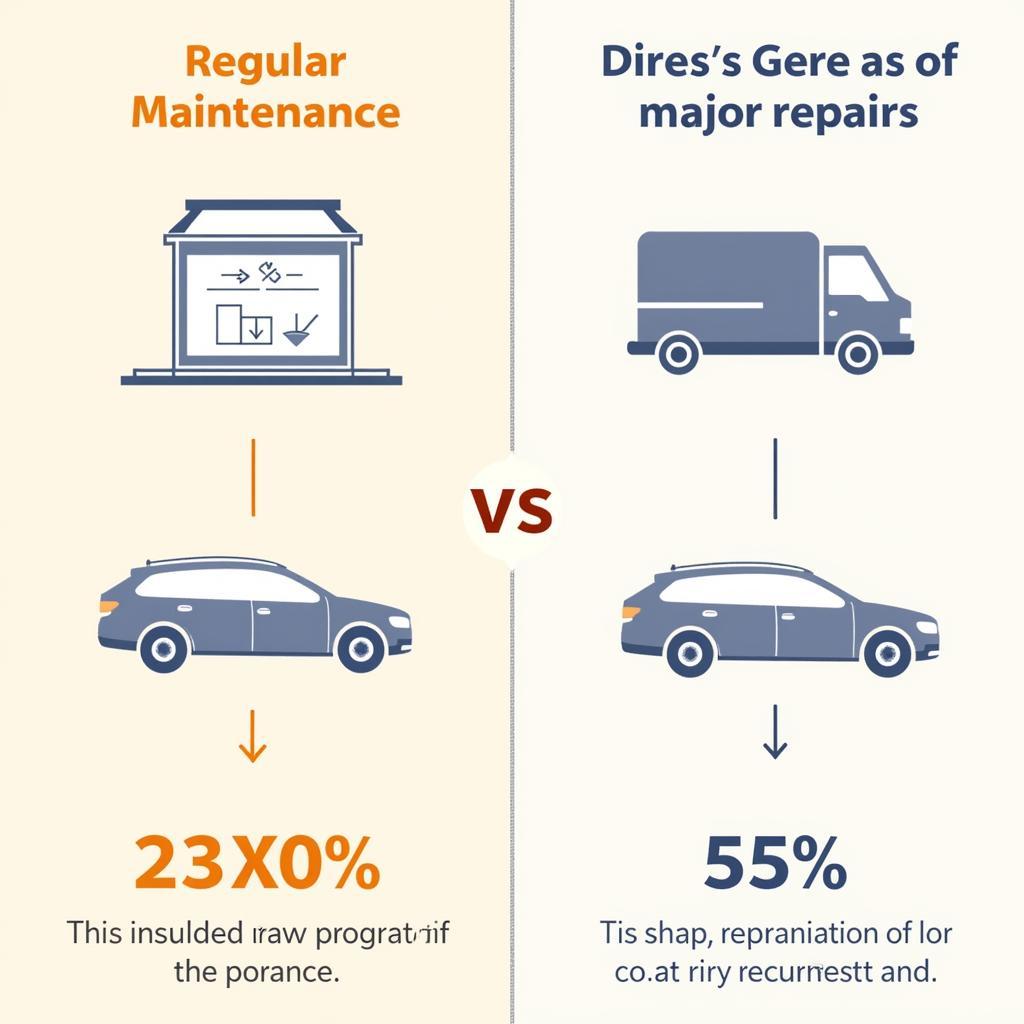Code enforcement for fixing cars on the streets of Prince George’s County is a crucial topic for vehicle owners. It’s important to understand the local regulations to avoid potential fines and ensure the safety and aesthetics of our neighborhoods. This guide will provide valuable information for car owners, repair shop owners, and automotive technicians navigating these regulations.
Understanding Prince George’s County Code Enforcement for Vehicle Repairs
Prince George’s County has specific regulations regarding vehicle repairs conducted on public streets. These regulations aim to maintain the appearance of the community and prevent safety hazards. Ignoring these rules can result in penalties. Let’s explore the key aspects of these regulations.
What Repairs Are Permitted on the Street?
While minor repairs like changing a flat tire or jump-starting a dead battery are generally permissible, more extensive work is typically prohibited. This includes engine work, body repair, and painting. The county aims to prevent streets from becoming makeshift auto repair shops.
What constitutes a “minor” repair can sometimes be ambiguous. If you are unsure whether your intended repair is permissible, it’s best to consult the county’s specific code enforcement regulations or contact the local authorities.
Where Can I Legally Repair My Car?
For repairs beyond minor fixes, designated areas like your private driveway or a licensed repair shop are the proper locations. Performing significant repairs on public streets not only violates county codes but can also create safety risks for both the person working on the vehicle and passing pedestrians or drivers.
Choosing a licensed repair shop offers several benefits. These shops are equipped with the necessary tools and staffed with trained professionals who can diagnose and resolve issues efficiently and safely.
Navigating Code Enforcement and Avoiding Penalties
Understanding the county’s code enforcement procedures can save you time, money, and potential legal hassles. Here’s what you should know:
How to Find the Specific Regulations
Prince George’s County’s specific code enforcement regulations regarding vehicle repairs can be found on the county’s official website or by contacting the Department of Permitting, Inspections, and Enforcement (DPIE). These resources offer detailed information on permissible repairs, prohibited activities, and potential penalties.
Staying informed about these regulations is crucial for both residents and business owners. Ignorance of the law is not a valid defense.
What Happens If I Violate the Code?
Violating the code can result in warnings, fines, and even legal action in more severe cases. The specific penalties will depend on the nature and severity of the violation. It’s always best to comply with the regulations to avoid these consequences.
“Being proactive and informed about the regulations is the best way to avoid unnecessary headaches,” says John Miller, a certified automotive technician with over 20 years of experience in Prince George’s County. “Taking the time to understand the rules can save you a lot of trouble in the long run.”
Conclusion: Stay Informed and Compliant with Code Enforcement for Fixing Cars on Prince George’s Streets
Understanding and adhering to Prince George’s County’s code enforcement regulations regarding vehicle repairs is vital for all car owners. By being aware of the permissible repairs and designated locations for more extensive work, you can avoid penalties and contribute to a safer and more aesthetically pleasing community. For further assistance, feel free to connect with us at AutoTipPro at +1 (641) 206-8880 or visit our office at 500 N St Mary’s St, San Antonio, TX 78205, United States. We’re here to help! Remember, responsible car maintenance benefits everyone.
“Staying compliant with local regulations not only keeps you out of trouble but also demonstrates respect for your community,” adds Maria Sanchez, a local resident and long-time advocate for community improvement.





Leave a Reply